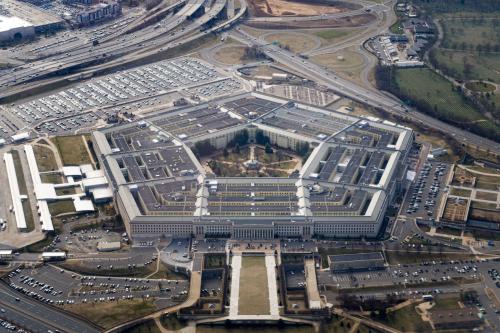With each passing day, Iraq sinks deeper into the abyss of civil war. President George W. Bush has staked everything on one last-chance effort to quell the fighting and jumpstart a process of political reconciliation and economic reconstruction. Should this last effort fail, the United States is likely to very quickly have to determine how best to handle an Iraq that will be erupting into Bosnia- or Lebanon-style all-out civil war. The history of such wars is that they are disastrous for all parties, but the United States will have little choice but to try to stave off disaster as best it can.
To begin to help provide a solution to that dilemma, Daniel L. Byman and Kenneth M. Pollack of the Saban Center for Middle East Policy at the Brookings Institution have written Things Fall Apart: Containing the Spillover from an Iraqi Civil War. This Saban Center Analysis Paper examines the history of some dozen recent civil wars to reveal the general patterns by which such conflicts can “spill over” into neighboring states, causing further civil wars or regional conflicts. Historically, six patterns of spillover have been the most harmful in other cases of all-out civil war: refugees; terrorism; radicalization of neighboring populations; secession that breeds secessionism; economic losses; and, neighborly interventions.
From this history, the authors propose a set of policy options that the United States could employ to try to contain the spillover effects of a full-scale Iraqi civil war. The “baker’s dozen” of policy options for the United States are:
- Don’t try to pick winners;
- Avoid active support for partition (for now);
- Don’t dump the problem on the United Nations;
- Pull back from Iraqi population centers;
- Provide support to Iraq’s neighbors;
- Bolster regional stability;
- Dissuade foreign intervention;
- Lay down “red lines” to Iran;
- Establish a Contact Group;
- Prepare for oil supply disruptions;
- Manage the Kurds;
- Strike at terrorist facilities;
- Consider establishing safe havens or “catch basins” along Iraq’s borders.
The Brookings Institution is committed to quality, independence, and impact.
We are supported by a diverse array of funders. In line with our values and policies, each Brookings publication represents the sole views of its author(s).




